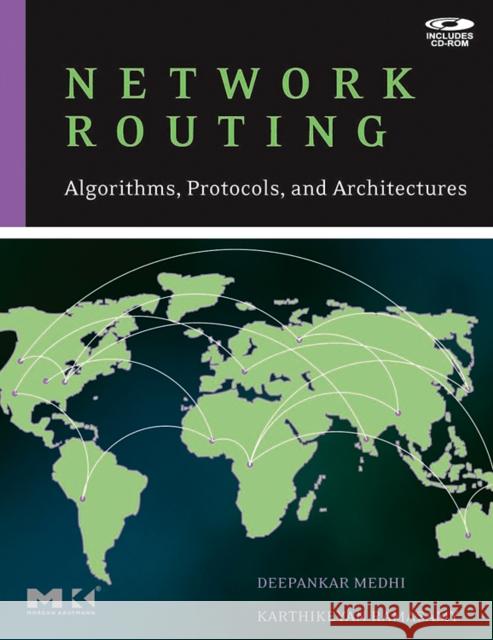network routing: algorithms, protocols, and architectures » książka
topmenu
network routing: algorithms, protocols, and architectures
ISBN-13: 9780120885886 / Angielski / Twarda / 2007 / 788 str.
Network routing can be broadly categorized into Internet routing, PSTN routing, and telecommunication transport network routing. This book systematically considers these routing paradigms, as well as their interoperability. The authors discuss how algorithms, protocols, analysis, and operational deployment impact these approaches. A unique feature of the book is consideration of both macro-state and micro-state in routing; that is, how routing is accomplished at the level of networks and how routers or switches are designed to enable efficient routing.
In reading this book, one will learn about 1) the evolution of network routing, 2) the role of IP and E.164 addressing in routing, 3) the impact on router and switching architectures and their design, 4) deployment of network routing protocols, 5) the role of traffic engineering in routing, and 6) lessons learned from implementation and operational experience. This book explores the strengths and weaknesses that should be considered during deployment of future routing schemes as well as actual implementation of these schemes. It allows the reader to understand how different routing strategies work and are employed and the connection between them. This is accomplished in part by the authors' use of numerous real-world examples to bring the material alive.- Bridges the gap between theory and practice in network routing, including the fine points of implementation and operational experience
- Routing in a multitude of technologies discussed in practical detail, including, IP/MPLS, PSTN, and optical networking
- Routing protocols such as OSPF, IS-IS, BGP presented in detail
- A detailed coverage of various router and switch architectures
- A comprehensive discussion about algorithms on IP-lookup and packet classification
- Accessible to a wide audience due to its vendor-neutral approach











